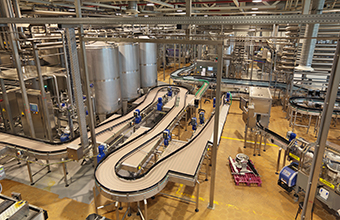What’s Actually Happening to Vacant Office Space in NYC?
Oh COVID, when will you be out of our lives and our vocabulary? Well now that we’re on the topic, COVID has significantly impacted NYC commercial real estate, especially when it comes to office space. In the brave new world of remote and hybrid work, NYC is seeing double the average amount of vacant office space, and a tale of two cities: A+ vacant space is moving quickly as companies come back to the office, but anything less than that has Landlords struggling to fill their vacant space — and they’re getting creative.
The world is watching to see what happens with vacant NYC office space…. but no pressure, right?
Investing in Significant Building Upgrades and Tenant Amenities
- 10 Grand Central - owners of this building spent significant money to extensively renovate, including a new (and beautiful) lobby and a brand new tenant amenity center that includes a bar, an outdoor terrace and Board-size conference rooms. They even moved the entrance from Third Avenue to 44th St. for better proximity to Grand Central and created a “club vibe” entrance that reflects a more modern workplace. The renovation seems to be working to decrease vacant space as the building is attracting fintech and startup tenants who love the location, aesthetic and amenities — and the tenant-only Porsche car too.
- 825 Third Avenue - this new and improved office building in Midtown recently underwent a major renovation (think hundreds of millions of dollars) to attract tenants to take some of their vacant space and upgrade the experience for existing tenants. They added a new lobby and tenant amenity space, and modernized the pre-built spaces to include self-tinting glass windows, modern fixtures and aesthetic, and get this — windows that turn into a TV or computer screen in all conference rooms. Given the amount of tenants looking for proximity to Grand Central and modern aesthetic and amenities, we’re guessing there won’t be much vacant space left in 825 Third in 2023.
Converting Vacant Office Space to a Campus Center and Apartments
- Touro College - placed right in the heart of Manhattan is the newest campus of Touro College. This building at 3 Times Square will be transformed into classrooms, labs, a library, event spaces, student lounges, and cafes for Touro College and its students. The building used to be the Thompson Reuters building, but with the amount of vacant office space and the risk of that continuing, the owners decided to activate their building in a different way. Touro College’s newest campus will also provide nearly 2,000 jobs.
- The once-iconic McGraw-Hill building in Midtown is in the process of converting the 11th through 32nd floor into apartments, along with an additional two floors of residential amenities. The amount of vacant office space in this building is not only due to COVID, but also due to the transformation of the publishing industry. Rather than risk continued vacant office space, the owners of this building are betting on an increasingly competitive residential market in NYC and the ongoing conversation of the surrounding blocks into a desirable living area.
- 160 Water Street – the Financial District office building that was once filled with bankers and insurers is now in the process of becoming residential apartments. In the next year this building will have six new floors and 588 residential apartments. Some of the improvements are reinforced structures like columns and beams diagonally facing to make the spaces feel more open, newer and larger windows, amenity spaces, home offices in some units, and improved energy efficiencies.
Name Your Price - Wait, You Can Do That?
- Vacant space in NYC that’s not making the cut as “top tier space” has led many landlords to accept less than desirable rents, particularly in certain neighborhoods. A Landlord may ask in the $50s and $60s per square foot, but with vacancy this high and remote work in NYC here to stay, you may get pricing that starts in the $20s or $30s — in other words, what we like to call “name your price” economics. Bottom line: you have more leverage than you may think in this market, and it’s important to know where to look and what to ask for to get what you want.
Takeaway:
Manhattan has always been the city of constant construction, but we’ve never had to re-envision the long-term landscape of the city quite like this. Remote work is here to stay, and forcing Landlords to get creative when it comes to filling vacant office space: investing large amounts of capital to re-imagine buildings and attract new tenants, converting office buildings into residential and education hubs, and offering essentially “name your price” deals. With these conversions we expect to see a significant change to the Midtown and Downtown areas which have always been office intensive. And in the meantime, vacant office space is probably also here to stay.



